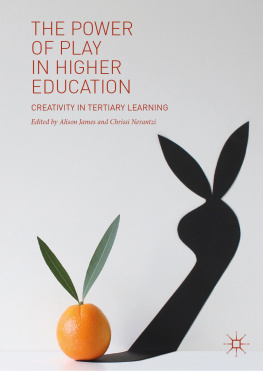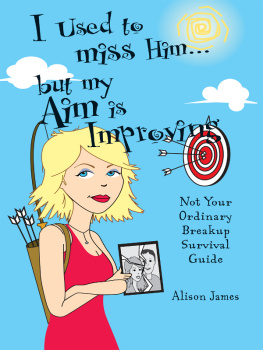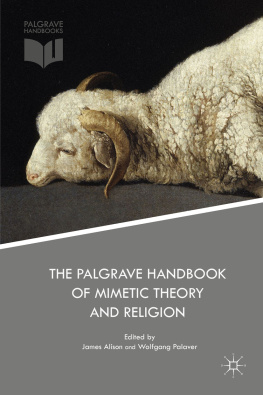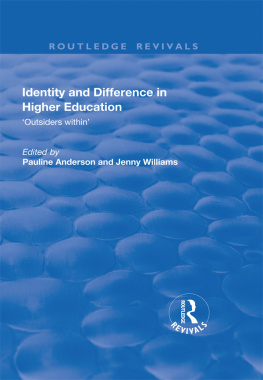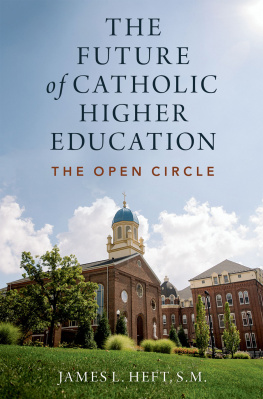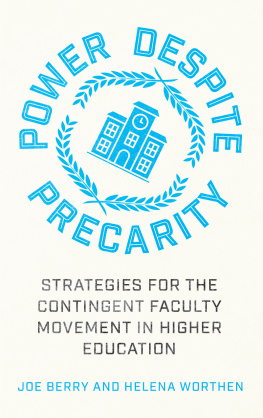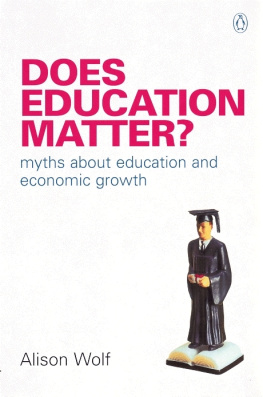Alison James - The Power of Play in Higher Education
Here you can read online Alison James - The Power of Play in Higher Education full text of the book (entire story) in english for free. Download pdf and epub, get meaning, cover and reviews about this ebook. publisher: Springer International Publishing, genre: Home and family. Description of the work, (preface) as well as reviews are available. Best literature library LitArk.com created for fans of good reading and offers a wide selection of genres:
Romance novel
Science fiction
Adventure
Detective
Science
History
Home and family
Prose
Art
Politics
Computer
Non-fiction
Religion
Business
Children
Humor
Choose a favorite category and find really read worthwhile books. Enjoy immersion in the world of imagination, feel the emotions of the characters or learn something new for yourself, make an fascinating discovery.
- Book:The Power of Play in Higher Education
- Author:
- Publisher:Springer International Publishing
- Genre:
- Rating:4 / 5
- Favourites:Add to favourites
- Your mark:
- 80
- 1
- 2
- 3
- 4
- 5
The Power of Play in Higher Education: summary, description and annotation
We offer to read an annotation, description, summary or preface (depends on what the author of the book "The Power of Play in Higher Education" wrote himself). If you haven't found the necessary information about the book — write in the comments, we will try to find it.
Alison James: author's other books
Who wrote The Power of Play in Higher Education? Find out the surname, the name of the author of the book and a list of all author's works by series.
The Power of Play in Higher Education — read online for free the complete book (whole text) full work
Below is the text of the book, divided by pages. System saving the place of the last page read, allows you to conveniently read the book "The Power of Play in Higher Education" online for free, without having to search again every time where you left off. Put a bookmark, and you can go to the page where you finished reading at any time.
Font size:
Interval:
Bookmark:
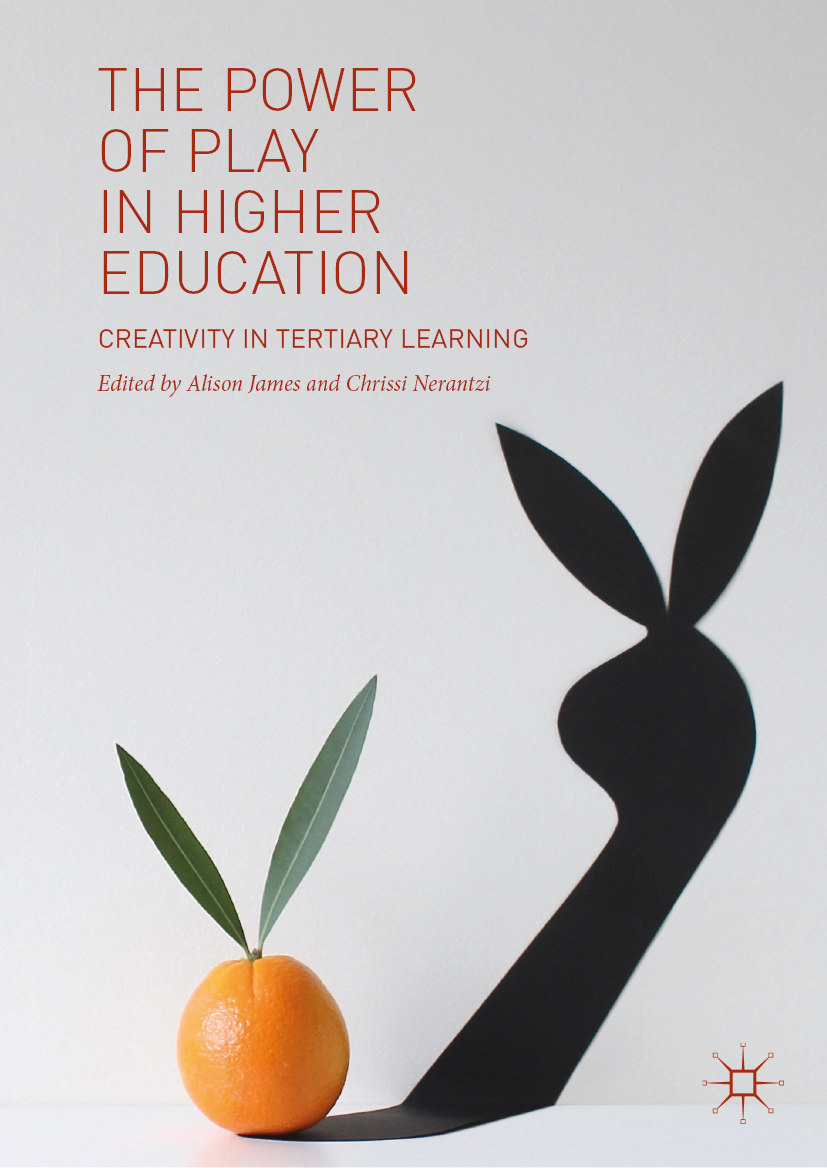

Cover image: pchyburrs/Getty
This Palgrave Macmillan imprint is published by the registered company Springer Nature Switzerland AG
The registered company address is: Gewerbestrasse 11, 6330 Cham, Switzerland
Academics are a justifiably sceptical lot and love to privilege logical and analytical thinking. To get us out of our routinized ways of creating meaning, assigning merit and judging worth we need to draw senses and powers other than purely rational cognition. Play galvanizes creativity, inspires action and triggers different ways of building knowledge. Its also an insurrectionary force that challenges bureaucratized and siloed thinking and practice. In this visionary book packed with wonderful vignettes, exercises, techniques and suggestions you will find ways to rethink and broaden your teaching and academic practice. Product warning: this book changes lives.
Professor Stephen Brookfield, University of St Thomas, USA
The importance of play as an ecology for learning and discovery is often overlooked in tertiary education, so these author/editors are to be congratulated for bringing together such a diverse and valuable set of pedagogical narratives about how play is being used to encourage learning and creativity in higher education. This is a must read book for tertiary educators who are interested in and who care about the creative development of learners and themselves.
Professor Norman Jackson, University of Surrey, UK
This book is a unique and timely contribution to the field of play and learning in Higher Education. It presents voices from practitioners across the sector demonstrating the extensive scope and scale of engagement with playful forms of learning. Through a series of in-depth case studies and vignettes of playful practice, this book inspires and convinces. It is packed full of examples and ideas, bringing together theory with experiences from the field. A must for creative educators everywhere!
Professor Nicola Whitton, Durham University, UK
Learning through play is a powerful methodology: this invaluable guide illuminates through an excellent range of UK and North-American contributions how ludic approaches are used to good effect in higher education. This highly practical and evidence-informed volume illustrates how creativity can be boosted, fostering student engagement, and generating enthusiasm for learning.
Professor Phil Race, Edge Hill University, UK ; Professor Sally Brown, Leeds Beckett University, UK
This book is dedicated to Glyn and Adam and to all those who have stepped out along the play path
For some while now theres been an odd assumption about formal education. A curious belief has taken root in the heads of policy-makers and those working in schools and universities that higher levels of study should be a deadpan business with little time for fun. Apparently as you grow up, its important to smile only occasionally and laugh a lot less than when you were younger. A stock rejoinder in any school classroom in response to behaviour which is seen as undesirable is to get on with your work. Not get on with your learning. Definitely not get on with your play. For many children, education can all too easily be a journey of increasing seriousness from the exuberance of the playground to the silence of the examination hall. At university, it is all too easy for a learners spirit of enquiry, playful experimentation and curiosity to be stifled by a misplaced perception that student engagement and student satisfaction will only be achieved if courses are delivered in certain unplayful ways.
In Descartes Error (2005), Antonio Damasio famously placed Ren Descartes in the dock for separating mind from body back in the sixteenth century. With the benefit of modern neuroscience, we now know that emotion, reason and the human brain are all intimately linked and that the philosophical assertions made by Descartes and others simply do not wash. Yet education still bears the mark of viewpoints like this in its separation between academic and practical learning, the former being of higher status.
Something similar has happened with the way play has been separated out from education, although this is not down to any one individuals influence. Rather, it has been a gradual cultural evolution towards a more serious version of learning. In early years, education play is virtually synonymous with learning. But, as pupils become older, play is increasingly removed from the experience of school. And, once at university, play can all too often be seen as unserious suggesting a lack of quality. Yet for some while now the learning sciences (Harrington 1990; Csikszentmihalyi 1999; Fullan and Langworthy 2013; Lucas and Spencer 2017) are increasingly showing us the importance of creative exploration, playful imagining and the kinds of perspective taking which play promotes throughout education.
Outside of school and university, life is also becoming less playful. Once upon a time, we used to run wild, returning to our homes only to be fed by our parents before heading back out again for second helpings of wildness and fun. Or at least this is the dream of the past that many of us still hold dear.
Sadly our memories on this occasion hold true. Todays young people do indeed have less freedom to play, more tests to complete, a lot of homework (that word work again) and, if they enter higher education, a growing seriousness of intent as the amount of their financial investment becomes apparent. Such a serious view is reinforced by many institutions in their perception that quality is to be judged by the earnestness with which every waking student moment is filled with useful assignments.
Font size:
Interval:
Bookmark:
Similar books «The Power of Play in Higher Education»
Look at similar books to The Power of Play in Higher Education. We have selected literature similar in name and meaning in the hope of providing readers with more options to find new, interesting, not yet read works.
Discussion, reviews of the book The Power of Play in Higher Education and just readers' own opinions. Leave your comments, write what you think about the work, its meaning or the main characters. Specify what exactly you liked and what you didn't like, and why you think so.

